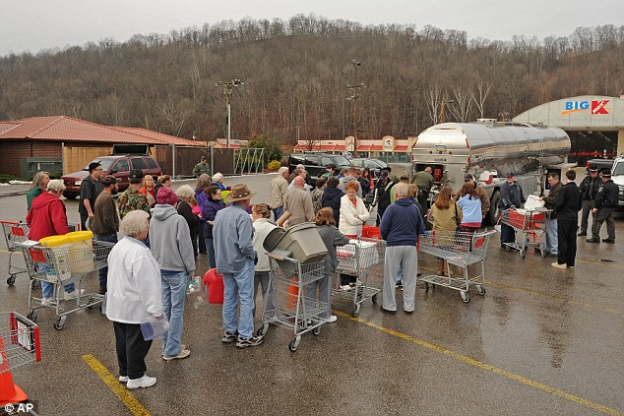

Uh, Minnesota, about that bag you’re holding
It’s really two bags
There has been a lot of discussion of late — and an actual hearing at the Legislature — about the financial assurances that the DNR ought to be requiring of PolyMet Mining Corp./Inc. before it/they are permitted to dig the Great Sulphur Lagoon and build Brimstone Mountain right next to it. Oh, and pump sulphurous tailings on an already-creaky taconite tailings basin that Cleveland Cliffs was really glad to get rid of.
In recent days, the editorialists at the Strib have said, in essence, Don’t be chumps about this, Minnesota. PolyMet, and the mining companies in general, don’t have our best interests in mind. They just want to mine the ore as cheaply as possible. Get all the assurance up front.
Since the ore is so low grade, the mining companies have extra incentive to do it on the cheap. And if we permit it — so to speak — we’ll have nobody but ourselves to blame when it goes wrong, as human endeavors always do.
To err is human, but in this case, to forgive would be stupid. And to not be fully “assured” up front would be as good as forgiving.
The liability for cleanup and reclamation is what is called, in economic terms, an “externality.” An externality is a cost of an economic enterprise potentially borne by somebody other than the enterprise, typically the public. Acid rain, poisoned water from chemical spills, and industrially-fouled air are all examples of externalities.
The Minnesota law requiring adequate financial assurances is directed at trying to make sure that a sulfide mine pays its own freight and doesn’t just walk away from liability to the State of Minnesota.
But it is only half of the picture. The other half of the picture is the image above of West Virginians lining up to get potable water. “Adequate financial assurances” are only intended to protect the state itself against the cost of cleanup or reclamation if the mining company goes bankrupt or just walks away, especially after the mine closes.
Adequate financial assurances do nothing to protect the public from the consequences of environmental disaster. Nothing.
The recent case of Freedom Industries — clearly an ingenious name that makes the whole fiasco sound like a giant Orwellian joke on the people shown above — is very instructive. As the linked story relates, at a Charleston (W.Va.) Kroger, a police officer was posted as people scrambled for bottled water after the spill of a toxic chemical into the Elk River by Freedom Industries.
When it became clear that the economic consequences of the spill were widespread, not only to individuals, but to restaurants, hospitals, and other businesses downriver, Freedom Industries did the patriotic thing: it went bankrupt.
The prospect of a Freedom Industries scenario in Minnesota on the Partridge or Embarrass Rivers (tributaries to the St. Louis River, which empties into Lake Superior), or in the groundwater in the whole area, especially a stubborn, chronic, sulfates or heavy metal problem, ought to dampen your ardor for sulfide mining in Minnesota, friends, especially if you aren’t one of the people protected by “adequate financial assurances.” And to repeat myself, that’s everybody.
There are a couple of gaping holes in the regulatory framework for sulfide mining in Minnesota. I’ve just described one of them; more about both of these holes will be forthcoming in another story.
Thanks for your feedback. If we like what you have to say, it may appear in a future post of reader reactions.

